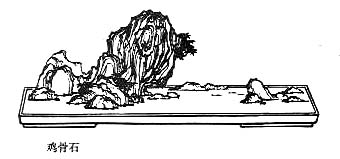易
經
Yi Jing 
 – I Ching, the Book of Changes
– I Ching, the Book of Changes
This famous system of 64 hexagrams plus their commentaries and transformations is at the root of Chinese thought. Tr. Wilhelm (en, fr).
| 14. 大 有 Ta Yu / Possession in Great Measure | ||||||||||||||||||||||||||||||||||||||||||||||||||||||||||||||||
| |||||||||||||||||||||||||||||||||||||||||||||||||||||||||||||||||
|
current binomial swap trig. opposite flip X leading master X constituent master
The Hexagram


Above LI THE CLINGING, FLAME
Below CH'IEN THE CREATIVE, HEAVEN
The fire in heaven above shines far, and all things stand out in the light and become manifest. The weak fifth line occupies the place of honor and all the strong lines are in accord with it. All things come to the man who is modest and kind in a high position.
The Judgment


Supreme success.
The two trigrams indicate that strength and clarity unite. Possession in great measure is determined by fate and accords with the time. How is it possible that the weak line has power to hold the strong lines fast and to possess them? It is done by virtue of unselfish modesty. The time is favorable–a time of strength within, clarity and culture without. Power is expressing itself in graceful and controlled way. This brings supreme success and wealth.
The Image


The image of POSSESSION IN GREAT MEASURE.
Thus the superior man curbs evil and furthers good,
And thereby obeys the benevolent will of heaven.
The sun in heaven above, shedding light over everything on earth, is the image of possession on a grand scale. But a possession of this sort must be administered properly. The sun brings both evil and good into the light of day. Man must combat and curb the evil, and must favor and promote the good. Only in this way does he fulfill the benevolent will of God, who desires only good and not evil.
Lower line


No relationship with what is harmful;
There is no blame in this.
If one remains conscious of difficulty,
One remains without blame.
Great possession that is still in its beginnings and that has not yet been challenged brings no blame, since there has been no opportunity to make mistakes. Yet there are many difficulties to be overcome. It is only by remaining conscious of theses difficulties that one can keep inwardly free of possible arrogance and wastefulness, and thus in principle overcome all cause for blame.
Second line


A big wagon for loading.
One may undertake something.
No blame.
Great possession consists not only in the quantity of goods at one's disposal, but first and foremost, in their mobility and utility, for then they can be used in undertakings, and we remain free of embarrassment and mistakes. The big wagon, which will carry a heavy load and in which one can journey far means that there are at hand able helpers who give their support and are equal to their task. One can load great responsibility upon such persons, and this is necessary in important undertakings.
Third line


A prince offers it to the Son of Heaven.
A petty man cannot do this.
A magnanimous, liberal-minded man should not regard what he possesses as his exclusive personal property, but should place it at the disposal of the ruler or of the people at large. In so doing, he takes the right attitude toward his possession, which as private property can never endure. A petty man is incapable of this. He is harmed by great possessions, because instead of sacrificing them, he would keep them for himself.
Fourth line


He makes a difference
Between himself and his neighbor.
No blame.
This characterizes the position of a man placed among rich and powerful neighbors. It is a dangerous position. He must look neither to the right nor to the left, and must shun envy and the temptation to vie with others. In this way he remains free of mistakes.
Fifth line


He whose truth is accessible, yet dignified,
Has good fortune.
The situation is very favorable. People are being won not by coercion but by unaffected sincerity, so that they are attached to us in sincerity and truth. However, benevolence alone is not sufficient at the time of POSSESSION IN GREAT MEASURE. For insolence might begin to spread. Insolence must be kept in bounds by dignity; then good fortune is assured.
Upper line


He is blessed by heaven.
Good fortune.
Nothing that does not further.
In the fullness of possession and at the height of power, one remains modest and gives honor to the sage who stands outside the affairs of the world. By this means one puts oneself under the beneficent influence descending form heaven, and all goes well. Confucius says of this line: To bless means to help. Heaven helps the man who is devoted; men help the man who is true. He who walks in truth and is devoted in his thinking, and furthermore reveres the worthy, is blessed by heaven. He has good fortune, and there is nothing that would not further.
luc
luc
vener chater [email protected] pierre

I Ching, the Book of Changes – Yi Jing I. 14. – Chinese on/off – Français/English
Alias Yijing, I Ching, Yi King, I Ging, Zhou yi, The Classic of Changes (Lynn), The Elemental Changes (Nylan), Le Livre des Changements (Javary), Das Buch der Wandlung.
The Book of Odes, The Analects, Great Learning, Doctrine of the Mean, Three-characters book, The Book of Changes, The Way and its Power, 300 Tang Poems, The Art of War, Thirty-Six Strategies
Welcome, help, notes, introduction, table.
Index – Contact – Top









